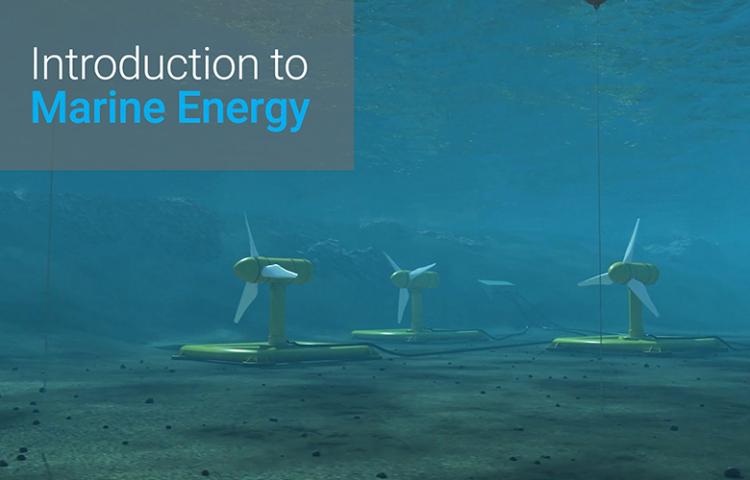On Dec. 9, 2022, the U.S. Department of Energy (DOE) Water Power Technologies Office (WPTO) announced over $16 million in new projects to further hydropower and marine energy research and development. These awards encompass $5.6 million for hydropower projects and $10.5 million for marine energy projects across six national laboratories. The projects that the National Renewable Energy Laboratory is supporting include:
- Development of CYSAT-Hydro, a cybersecurity situational awareness tool for hydropower
- Harnessing ocean thermal gradients using thermoelectric-based submersibles for aquaculture and sea power applications
- H2ydro-GEN, which enables reliable and resilient marine energy microgrids for remote, coastal, and island communities
- Strategic environmental monitoring for DOE marine energy deployments
- Development of thermomagnetic generators, novel heat engines that can power the blue economy
- Advancement of the variable geometry oscillating surge wave energy converter (VGOSWEC) toward commercialization
- Creation of a strategic road map for incorporating tools and data for water equity and water justice into hydropower projects.
Celebrating Water Power's Successes in Fiscal Year 2022
Over the past year, NREL's water power researchers have been busy. They studied how climate change might impact the country's water supplies, helped build new marine energy devices (including one that could help with those diminishing water supplies), analyzed hydropower's role in a 100% clean energy grid, and inspired a new generation of students to pursue careers in water power. And there's more. Check out just a few of the lab's biggest accomplishments in water power from 2022.
What To Watch
New Video Offers an Introduction to Marine Energy

The Introduction to Marine Energy video is featured on NREL's YouTube Channel and on the Marine Energy Basics landing page. Image by IKM Graphics
NREL released an introductory video on marine energy to bring the lab's research off the page and into an easy-to-understand format. This video bridges the informational gaps between technical publications and high-level introductions and provides viewers insight into what marine energy is, what types of marine energy resources and technologies exist, and what challenges and considerations the field still faces. In addition, the video demonstrates how NREL's research is clearing a path for marine energy to make substantial contributions to our renewable-energy-powered future. Because marine energy technologies are still in the early stages of development, this video aims to share knowledge with the public and potential partners, outside of conventional outlets, to accelerate the growth of marine energy toward commercialization.
Video Showcases Collection of Vital Marine Energy Technology Data

The PRIMRE Overview video is featured on the OpenEI YouTube page and the PRIMRE website. Image by PRIMRE and NREL
A new video on OpenEI demonstrates how the Portal and Repository for Information on Marine Renewable Energy (or PRIMRE) has consolidated marine energy data into one publicly available, searchable online library. The data include information such as wave heights or current speeds, device performances, and considerations for marine wildlife and ecosystems. Spearheaded by NREL researchers Jon Weers, Hanna Fields, Sean Morris, and Katie Peterson, PRIMRE collates information from seven "Knowledge Hubs," with more on the way. The goal of PRIMRE which was created with funding from WPTO is to make it easy for everyone in marine energy to get the data they need to accelerate the pace of innovation in marine energy and make it a more viable renewable energy technology.
Discovering the Ocean Through Data: NREL's Modular Ocean Data Acquisition System (MODAQ)
Data acquisition is playing a critical role in the expansion of marine energy research and development across the United States, and NREL researchers and a system called MODAQ are leading the charge. MODAQ, or the Modular Ocean Data Acquisition system, was created to support the advancement of marine renewable energy technologies by providing a comprehensive, verified, easily customizable, data processing and storage solution for marine energy devices. Learn more about the device and its capabilities.









